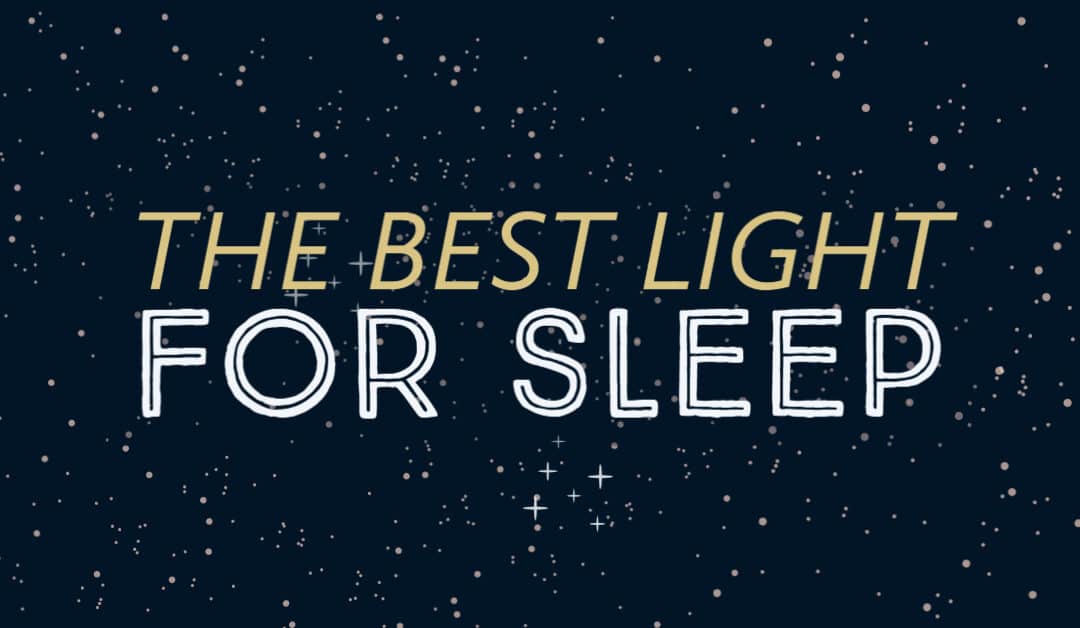Our light exposure and sleep cycle are inextricably linked. Bright lights can keep us awake. Blue shades of light on electronic screens can hinder sleep. A dark evening under the stars can help us sleep soundly all night. Some individuals struggle to fall asleep with any light whatsoever. Blackout curtains, anyone? Is it possible that there are shades of light that help us to sleep better? Let’s look at the best kind of light for sleep.
Our Body’s Sleep Cycle
Our body’s sleep cycle, also called our circadian rhythm, affects our appetites, moods, and brain waves. Staying on the same schedule for sleep can often correct trouble with falling asleep at night. A schedule helps because your body starts to expect sleep at the same time every night. Hormones such as melatonin prepare your body for the expected slumber. Your circadian clock uses light and dark to prepare you for wakefulness and sleep.
According to The Sleep Foundation, “light exposure at night can hinder transitions between sleep cycles, reducing the quality of sleep. Too much light can cause repeated awakenings, interrupting the sleep cycle and reducing time spent in deeper, more restorative sleep stages.”
When your schedule is topsy turvy, as someone who works night shifts 3 days per week, your body’s sleep cycle gets confused. With irregular sleeping habits, you can bring on mood disorders related to your body’s disturbed sleep rhythms.
According to Nature, “Most epidemiological data show that shift workers are at a higher risk for depression, such that night shift work is associated with increased psychological strain in the short-term. In the long-term it may increase the risk of mental illnesses, particularly depression.”
How Light Affects Our Sleep Cycle
Your circadian rhythm is a crucial factor when trying to sleep. Light has a powerful effect on when you get sleepy and when you feel most awake. When you understand how light affects your sleep schedule, you can manipulate your light intake to feel more awake when you need to concentrate or work.
You can also use lack of light to feel sleepy when it’s your bedtime. To help yourself feel sleepy, you’ll want to reduce light exposure for 2 hours before bedtime.
If you need to stay awake later than usual, bright light can help keep you awake longer without sleepiness. However, you may also feel the need to sleep later the following day. Staying up later each night is how your sleep schedule can slowly change to staying up and sleeping in late each day.
It is also essential to expose yourself to bright light within an hour of waking from slumber if you are on a schedule you would like to keep.
The Worst and Best Light for Sleep
Exposing yourself to white or blue bright light during your early wakeful hours can help to improve your mood and keep you awake and alert. Alternatively, the best light for falling asleep is no light at all for the 2 hours before you want to sleep. However, this is not a practical way to live in our society in 2021. Our schedules are light-filled way past dusk with our smartphones, TVs, and fluorescent lights.
If you can reduce bright light in the 2 hours before bedtime, you may fall asleep easier. The blue light from our screen time is often the most crucial factor to avoid. Exposure to blue light before bedtime can keep you from falling asleep. Blue light exposure during sleep can keep you from staying asleep.
In the 2 hours before bedtime, set your screens to the dimmest level. You can also download apps on smartphones that reduce the blue light on your screen. Reducing blue light can help relieve eye strain and prepare your body for sleep. You can also try wearing dark wraparound sunglasses with a red or orange tint.
Red light does not affect your circadian sleep rhythm. You can purchase light bulbs that have a red tint for use at night. Yellow and orange light only have a minor impact on sleep cycle rhythms.
Use Light to Your Advantage
The CDC offers some good tips to start with if you feel like light is disrupting your sleep.
- If you have trouble falling asleep, keep the light levels dim for the 2 hours before you want to go to sleep. You can wear dark sunglasses (wraparound ones work best) if it is hard to control the light in the area. That should help you fall asleep more easily.
- If you are getting sleepy too early in the evening, you can go into a well-lit area to reduce the sleepiness. (However, if you are sleep deprived or fighting an infection, go to sleep early and catch up on needed sleep.)
- Bright morning light will shift the time for sleep earlier, so you will tend to get sleepy and fall asleep earlier in the evening and will wake up earlier in the morning.
- If you wake up too early and cannot fall back to sleep, make sure you keep the lights very dim until you want to wake up.
- If you cannot wake up early enough, go into a brightly lit area when you get up (for example, eat your breakfast outside or next to a sunny window).
- If you have to get up in the middle of the night, keep the light level very dim.
We Can Help
At Enticare, our ENT specialists treat all kinds of sleep problems. We specialize in sleep disorders and understand how best to help you get a good night’s sleep again. If you are struggling to sleep each night despite your best efforts, we can get you back on a path to resting well. Our experience shows us that you can wake up feeling refreshed and ready for your day again. Contact us with questions, make an appointment, or schedule a sleep study today and find out how we can help you.

